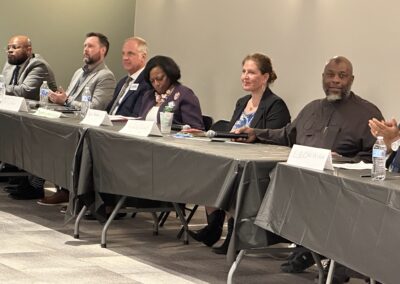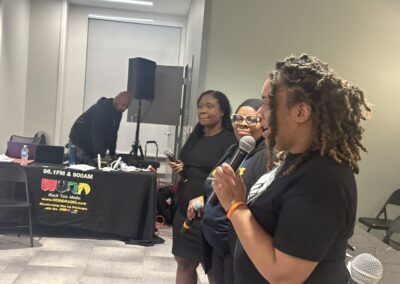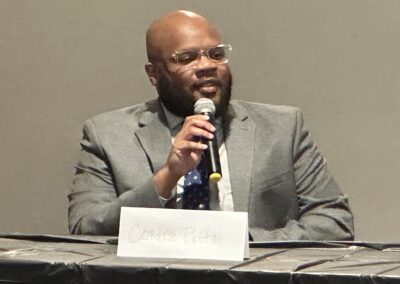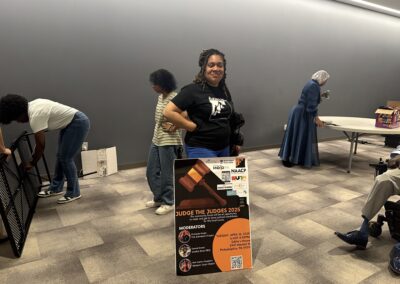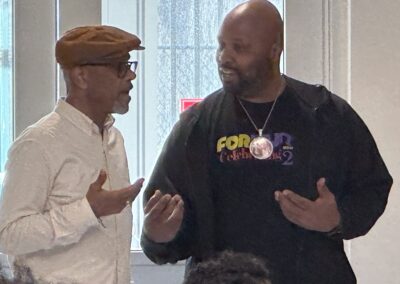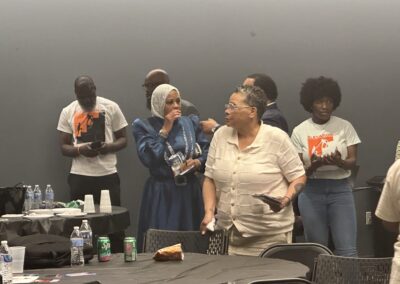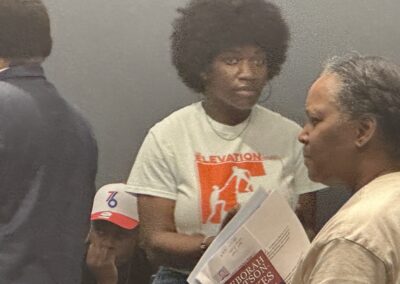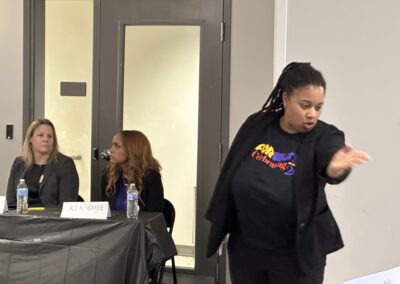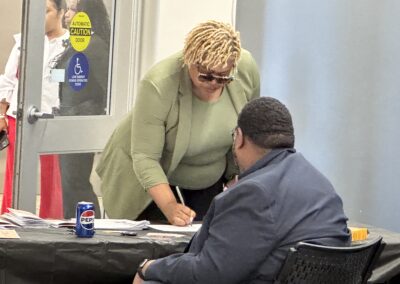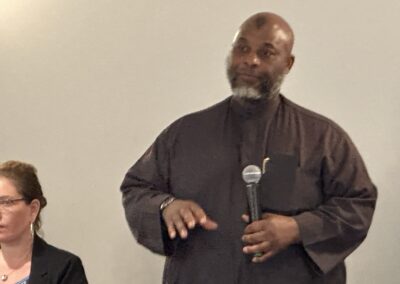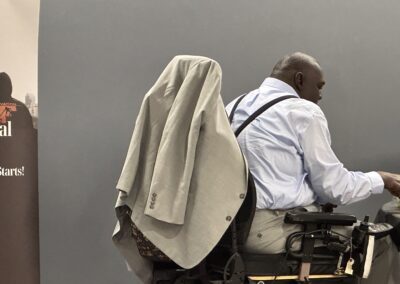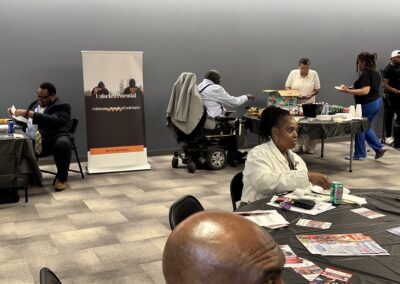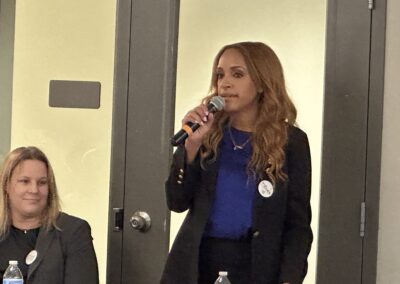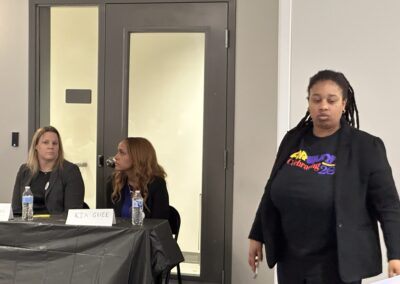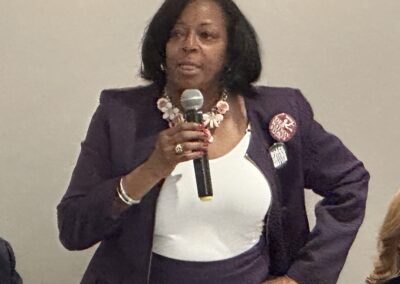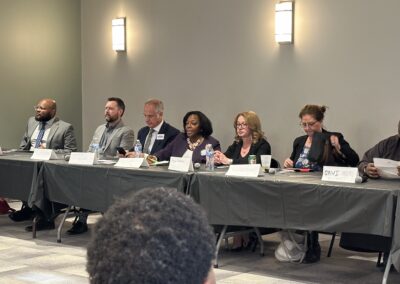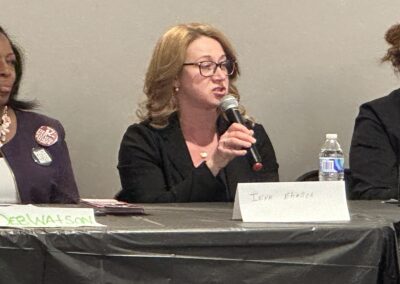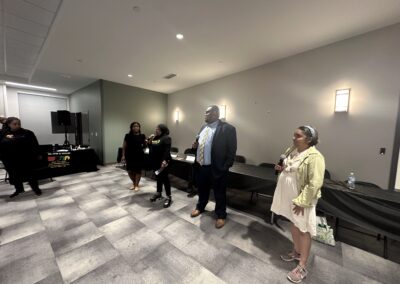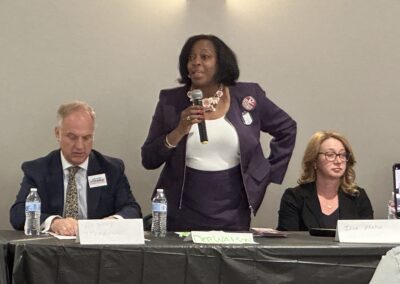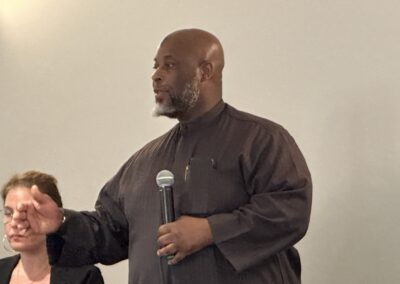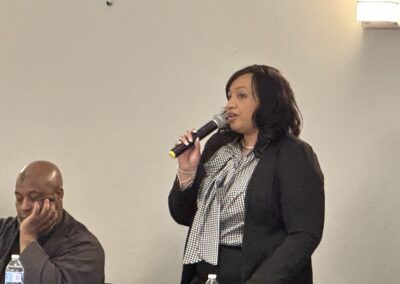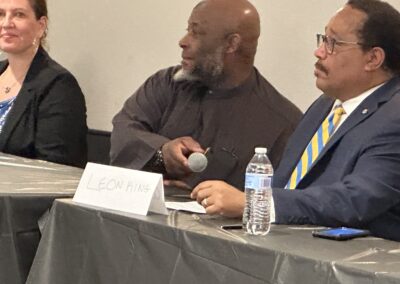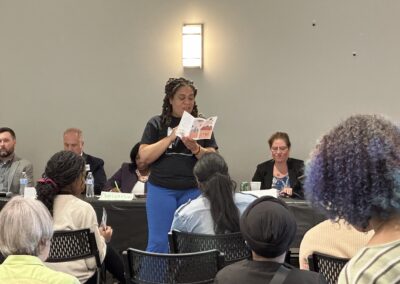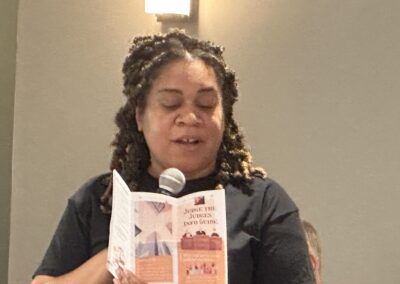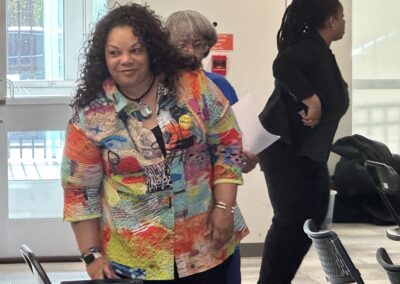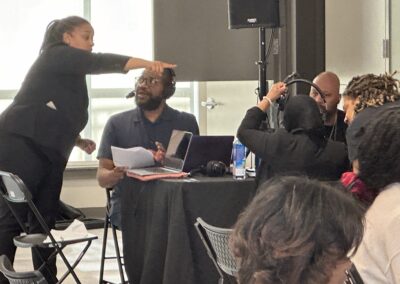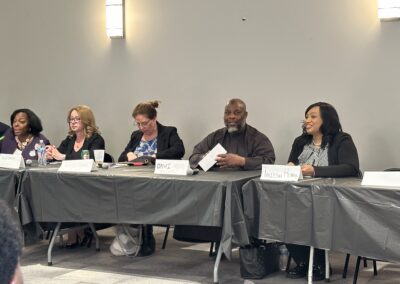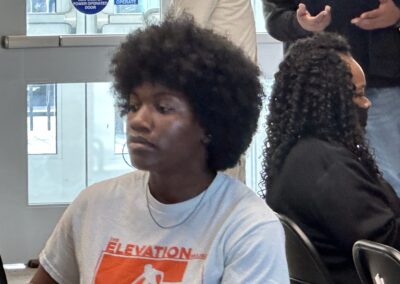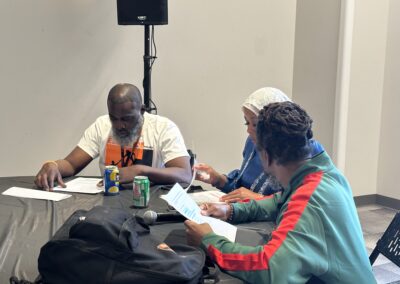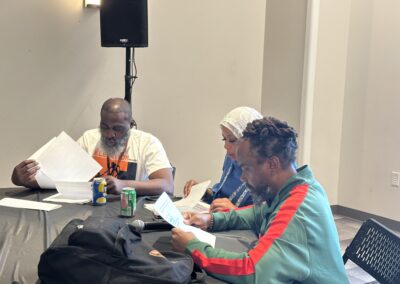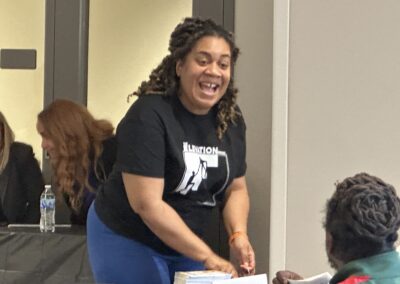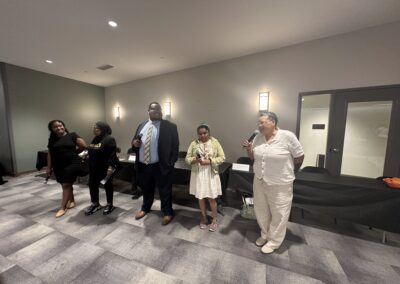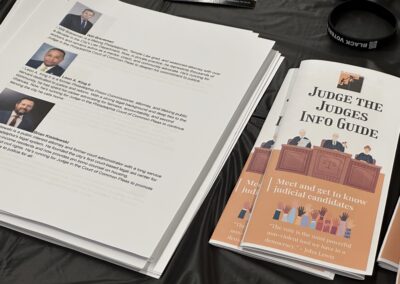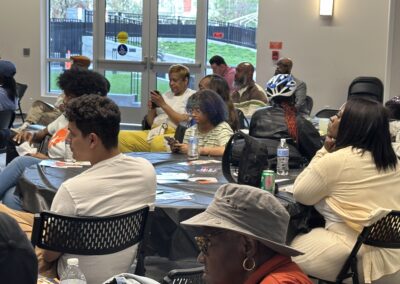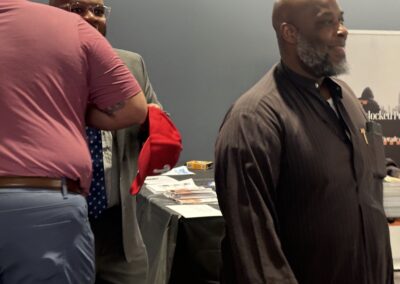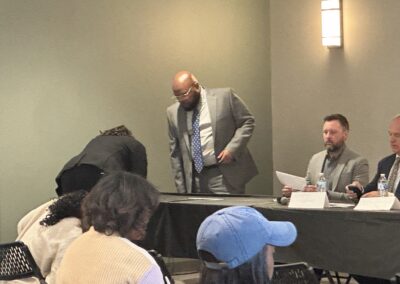On April 29, 2025, community members gathered for the “Judge the Judges” forum, a collaborative event organized by Elevate 215 under the leadership of Executive Director LaTrista Webb, alongside several partner organizations including Community Hero PA, Philadelphia Participatory Defense, NAACP Philadelphia, Kaden’s Korner, Womxn Beyond Borders, Eddie’s House, Kings Saving Kings and Queens for a non-partisan judicial candidate forum for the Philadelphia local primary races. This nonpartisan event allowed community members to hear directly from the candidates from a series of questions posed by three special hosts, all of whom had been impacted by the justice system. The event was well attended and WURD Radio held a live broadcast directly from the event hosted at Eddie’s House at 5901 Market St Suite 106, Philadelphia, PA 19139.
Understanding Pennsylvania’s Judicial System
Pennsylvania’s judiciary is structured into several levels, each with distinct responsibilities:
-
Philadelphia Municipal Court: This court deals primarily with criminal offenses and preliminary hearings for felony charges. It also handles civil cases with claims up to $12,000, landlord-tenant disputes, and traffic violations. For example, if someone receives a traffic ticket or is involved in a minor civil dispute, their case would be heard here.
-
Philadelphia Court of Common Pleas: Judges in this court handle a variety of significant legal matters, including felony trials, major civil disputes, and family law cases such as divorce and custody. They also oversee matters involving orphans’ court issues like wills, estates, and adoptions. Imagine a family navigating the complexities of a custody battle; the decisions made here can have lasting impacts on their lives.
-
Superior Court: This appellate court reviews decisions from the Courts of Common Pleas in criminal and civil cases. For instance, if someone believes their trial was unfair due to legal errors, they can appeal to the Superior Court for a second look.
-
Commonwealth Court: Specializing in cases involving state and local governments, this court handles matters such as regulatory agency decisions and public sector legal disputes. Imagine a scenario where a local business challenges a state regulation they believe is unfair; the Commonwealth Court would be the venue for such a case.
-
Supreme Court of Pennsylvania: As the highest court in the state, it has discretionary appellate jurisdiction and oversees the administration of the entire judicial system. Its decisions can have wide-reaching implications, such as determining the constitutionality of state laws.
The Real-Life Impact of Judicial Decisions
Judicial rulings can have profound effects on individuals and communities. For instance:
-
Family Law: Decisions in the Courts of Common Pleas regarding child custody or protection from abuse orders directly affect family dynamics and personal safety.
-
Criminal Justice: Appellate courts’ interpretations of criminal law can influence sentencing guidelines and rehabilitation opportunities.
Candidates in the 2025 Judicial Elections
While not all candidates attended the “Judge the Judges” forum, it’s essential to be informed about those running for judicial positions:
Supreme Court (Retention Elections):
-
Justice Christine Donohue
-
Justice Kevin Dougherty
-
Justice David Wecht
Superior Court:
-
Brandon Neuman (Democrat)
-
Maria Battista (Republican)
-
Ann Marie Wheatcraft (Republican)
Commonwealth Court:
-
Stella Tsai (Democrat)
-
Matthew Wolford (Republican)
-
Joshua Prince (Republican)
The Importance of Judicial Elections
Judges make decisions that can influence various aspects of daily life, from education policies and healthcare access to environmental regulations and civil liberties. Participating in judicial elections empowers citizens to shape the judiciary to reflect their values and uphold justice within the community.
Voter Turnout and Its Implications
Historically, judicial elections in Pennsylvania have seen low voter turnout. For example, in the 2021 state Supreme Court election, only about 32% of registered voters cast their ballots. This low participation means that a small segment of the population decides on judges who make decisions affecting everyone.
Get Involved
To ensure your voice is heard:
-
Register to Vote: The deadline to register for the primary election is May 5, 2025.
-
Primary Election Day: Mark your calendar for May 20, 2025, and make a plan to vote.
To learn more about the candidates and the judicial system, visit the Unified Judicial System of Pennsylvania. Engage with community organizations, attend forums, and exercise your right to vote in the upcoming elections.


